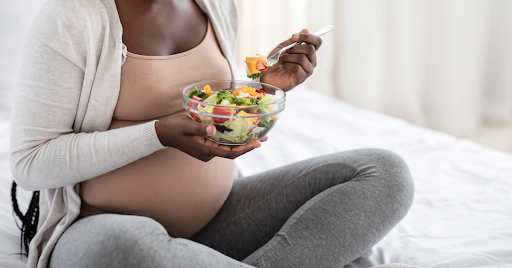Are you ready to bring your own little miracle into the world? Many women believe that modifying their lifestyle only begins once they fall pregnant. Even though there is some truth behind this, there are a number of steps you can take before trying to conceive that can help better prepare you for the lifestyle, financial, and bodily changes you are about to undergo. Planning for pregnancy can be equally important as the steps you take to promote a healthy lifestyle during your pregnancy.
Your Preconception Checklist
Planning for pregnancy means spending time making healthy lifestyle changes that can have a lifetime of impact on you, your baby, and your family. Raleigh OB/GYN has outlined a few boxes to tick off before trying to conceive.
Schedule A Checkup
One of the most critical steps to take when planning for pregnancy is to schedule a preconception appointment with your OB/GYN. During this appointment, your doctor may review your health history, pre-existing medical conditions, current lifestyle behaviors, medications/ vaccinations, and perform a physical exam. Usually, the physical exams include a pelvis exam or pap smear.
Alter Lifestyle Choices
When planning for pregnancy, it is crucial to consider your lifestyle choices, such as drinking alcohol, smoking, nutrition, and body weight. The Centers for Disease Control and Prevention suggests people who are overweight or obese have a higher risk for complications during pregnancy, including heart disease, type 2 diabetes, and certain cancers. Additionally, smoking and drinking alcohol can also cause complications, including premature birth, congenital disabilities, and stillbirth. In planning for pregnancy, ensure you reach and maintain a healthy weight, avoid toxic substances, and eat a nutritious diet.
Make A Budget
It is important to keep in mind that you will need to have several doctor visits throughout your pregnancy. This may leave you wondering, how much will this cost? A great way to ease the angst and get a better idea of the number going into pregnancy is to make a budget. We suggest calling your insurance company to find out what they will cover, such as OB/GYN appointments, ultrasounds, prenatal vitamins, prenatal screenings, genetic testing, and labor and delivery. Other pregnancy costs include, but are not limited to, maternity clothing, medications, nursery costs, baby clothes, stroller, car seat, etc.
Start Prenatal Supplements
Prenatal supplements contain essential vitamins for both mom and baby. The American College for Obstetrics and Gynecology suggests the most important vitamins and minerals during pregnancy include:
- Calcium
- Iron
- Iodine
- Choline
- Vitamin A, C, D, B6, and B12
- Folic acid
Eating well and ensuring you are getting an adequate dose of the nutrients listed above is one of the best things you can do while planning for pregnancy and during your pregnancy.
Learn Family History
Your family health history is vital to your child’s health. History that includes birth defects, developmental disabilities, or other genetic conditions is all crucial to know and relay to your doctor while planning for pregnancy. Depending on your family history, your doctor may suggest genetic testing or counseling to maximize your chances of a healthy and successful pregnancy and baby. Learning about your and your partner’s health history before getting pregnant is a highly recommended precautionary measure.
Here at Raleigh OB/GYN, we understand the importance of planning for pregnancy— and we’re here to guide you the whole way! From making a plan to execution, we are dedicated to helping you understand every step of your unique pregnancy journey. If you have questions about preconception health, set up an appointment to talk to your doctor. You can schedule an appointment through our website or give us a call at (919) 876-8225.











